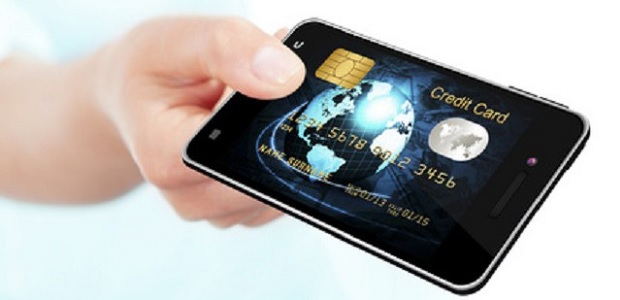
European mobile payment providers iZettle and SumUp are among a handful of start-ups that have encouraged European small businesses to kick their cash-only habits.
Now, their strategy is to lower fees as they brace for a more formidable challenge: the onslaught of mature North American payment providers onto their home territory. San Francisco-based Square – headed by Twitter chief Jack Dorsey – is among the new entrants.
SumUp Chief Executive Daniel Klein told Reuters that his company, which is funded partly by e-commerce giant Groupon, is prepared to cut the fees it charges merchants in order to take advantage of a growing market and stay competitive.
Klein did not specify how much lower SumUp could go. But there is room for maneuver, because, for the first time in August, the five-year-old SumUp made a profit and expects to be profitable for the full year, he said.
SumUp, which in Europe operates in 14 countries, currently charges 1.95 percent, 1.75 and 1.45 percent in Britain and France and Poland, respectively. That compares to a 2.4 percent average that Juniper Research estimates such global mobile payment providers charge merchants.
„There is still a lot of pent up demand that needs to be satisfied,” Klein said in an interview. „The opportunity is massive.” SumUp has not given revenue figures but says it now processing an annualized 1 billion euros in transactions.
Sweden’s iZettle, a six-year-old company which is Europe’s market leader with an annual run rate of 3 billion euros, announced in June that it was cutting its fees for merchants with high sales volumes.
The fee cuts are among the strategies European companies are using to counter the emergence in Europe of players including U.S. payments giant PayPal and Square . The price-cut strategy has risks. Though lower fees are a way to battle larger U.S. competition, they could put pressure on profits on these players for years to come, analysts say.
PayPal rolled out its PayPal Here device in Britain in 2013 and Square has started recruiting in Europe and field testing in London as it too prepares a European launch.
The rush into Europe is partly driven by upcoming European Union regulation making it easier for non-banking players to compete in the payments arena. So, the European payment landscape is about to become more open, and also more competitive: the new European regulations that aim to level the playing field for banks and payments firms will give third parties direct access to bank accounts by 2018. That means customers can pay bills or shop using their payment service of choice.
Jacob de Geer, chief executive of iZettle, says the company is „purposefully not profitable” so that it can invest in growth. The firm, backed by MasterCard and American Express, is present in 10 markets in Europe and has „ambitious plans for the next couple of years.”
iZettle, which has a 2.75 percent fixed rate for the majority of its users, announced in June it was cutting rates for merchants with high sales volumes even further – to one percent.
SumUp’s Klein said demand from existing users and new ones who are accepting card payments for the first time would drive the business in the years to come. It expects to install 20 to 30 million terminals over the next five to 10 years, compared to 8 million today.
„There is an entire industry that hasn’t really adopted card payments,” he said.
Darrin Peller, an analyst covering both Square and PayPal for Barclays, said that iZettle has the geographic reach and brand awareness in Europe that makes it better placed than U.S. rivals.
There is clear evidence that Europe – where small and medium companies make up most of the corporate landscape – is a rich market for the taking. The region makes up almost one-fifth of total global revenues in the space and is seen increasing over time.
„Customers would much rather pay with a card,” says Vasilie Kim, owner of food vendor Smakhuset in downtown Stockholm, who uses iZettle software to track which items sell best and how many customers return. Only one in five pays with cash, he says.
Peter Gutniak, who runs several vaccination clinics and buses in Stockholm and has 9 iZettle devices, said he used to have to deal with connected terminals, cords and paper receipts.
„Now I just sms or email receipts to customers,” he said. „It’s a modern system, it’s cheaper and it is incredibly simple.”
Source: bloomberg.com
Banking 4.0 – „how was the experience for you”
„To be honest I think that Sinaia, your conference, is much better then Davos.”
Many more interesting quotes in the video below: